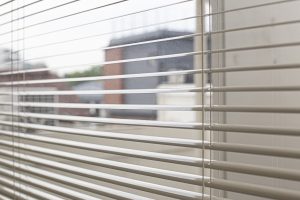 Mini blinds or window blinds, also known as Venetian blinds, have been a popular choice for window coverings since their invention in the mid-18th century. However, they have also been the subject of litigation due to safety concerns related to the cords used to operate them. Jim Onder, a prominent lawyer based in Missouri, has been involved in several high-profile mini blind cases nationwide, including one that resulted in a multi-million dollar settlement.
Mini blinds or window blinds, also known as Venetian blinds, have been a popular choice for window coverings since their invention in the mid-18th century. However, they have also been the subject of litigation due to safety concerns related to the cords used to operate them. Jim Onder, a prominent lawyer based in Missouri, has been involved in several high-profile mini blind cases nationwide, including one that resulted in a multi-million dollar settlement.
These lawsuits have been hard won, both for Onder and for the parents and families who have taken a stand. Unfortunately, we live in a world where strangers entertain themselves by being critical of others, and the curtain of anonymity has not been kind to these families, who are often blamed for their child’s tragic accident.
At OnderLaw, we are incredibly proud of these parents and families from across the United States because they have withstood the storm and created changes in the window covering industry that have saved countless lives.
Deadly Window Blind Accidents
In the 1980s, concerns began to arise about the safety of window blind cords, particularly with regards to young children. The Consumer Product Safety Commission (CPSC) began investigating the issue and issued a voluntary industry standard in 1995 that required all blinds manufactured after that date to include warning labels and cord stops that prevent the cords from being pulled too tightly.
Despite these efforts, incidents continued to occur, and in 2009, the CPSC issued a warning about the dangers of window blind cords, citing over 200 deaths and injuries since 1999. The agency urged consumers to use cordless window coverings or to properly install cord cleats to keep cords out of reach of children.
OnderLaw Firm Helps Window Blinds Victims
In 2012, a settlement was reached in a class-action lawsuit against three major window blind manufacturers, including Hunter Douglas and Springs Window Fashions, over the safety of their products. The lawsuit, which was filed by Jim Onder, said these companies failed to adequately warn consumers about the dangers of corded window blinds.
The settlement, which was valued at $55 million, included provisions for warning labels on all corded blinds and the development of cordless or inaccessible cord options for certain products. It also established a fund to compensate those who had been injured or killed by corded window blinds.
A Lawyer for Miniblind Accidents
Following the settlement, Onder continued to pursue cases related to mini blind safety, including a lawsuit against the retailer JCPenney in 2015. The lawsuit alleged that JCPenney failed to adequately warn consumers about the dangers of corded window blinds and sought compensation for the family of a young child who had been seriously injured as a result. The case was settled for an undisclosed amount.
In addition to his work on mini blind cases, Onder has also been involved in other high-profile lawsuits related to product safety and consumer rights. His firm, OnderLaw, has been recognized as one of the top personal injury firms in the country, with a focus on cases related to defective products, pharmaceuticals, and medical devices.
While Onder’s involvement in mini blind litigation has helped raise awareness about the dangers of window blind cords, there continue to be incidents involving these products. In 2018, the CPSC issued a recall of millions of window blinds manufactured by the retailer Ikea after reports of multiple child deaths and injuries related to the cords. The recall, which affected products sold in the United States and Canada, required that consumers stop using the blinds and return them for a full refund or a free cordless replacement.
The CPSC has also continued to educate consumers about the dangers of window blind cords and how to prevent accidents. In addition to urging the use of cordless or inaccessible cord options, the agency recommends that consumers keep all window blind cords out of reach of children and use cord cleats to secure them.
Partnering with Parents for Window Blind Safety, Onder has forced the industry to improve the safety of its products, including implementing voluntary safety standards, recalling defective products, and developing cordless and inaccessible cord options. Legislative and regulatory actions have also been taken to improve safety, but incidents continue to occur.
Parents and caregivers must continue to educate themselves about the risks associated with window blinds and to take steps to prevent accidents. This includes using cordless or inaccessible cord options, keeping cords out of reach of children, and using cord cleats to secure them. It is also important for manufacturers to continue to improve the safety of their products and to warn consumers about the dangers of window blind cords, and to continue to develop safer products.
These warriors have forced a number of positive, life-saving changes, but there is more work to be done. For example, some manufacturers now offer motorized or remote-controlled window blinds, which eliminate the need for cords altogether. Others offer alternatives made from natural or eco-friendly materials, such as bamboo or recycled materials.
One child’s death is too many. Jim Onder will continue to fight alongside parents and families who have suffered one of the worst possible tragedies — the death of a child — to continue to force the window covering industry to not only warn parents and caregivers, but to create safer products.






